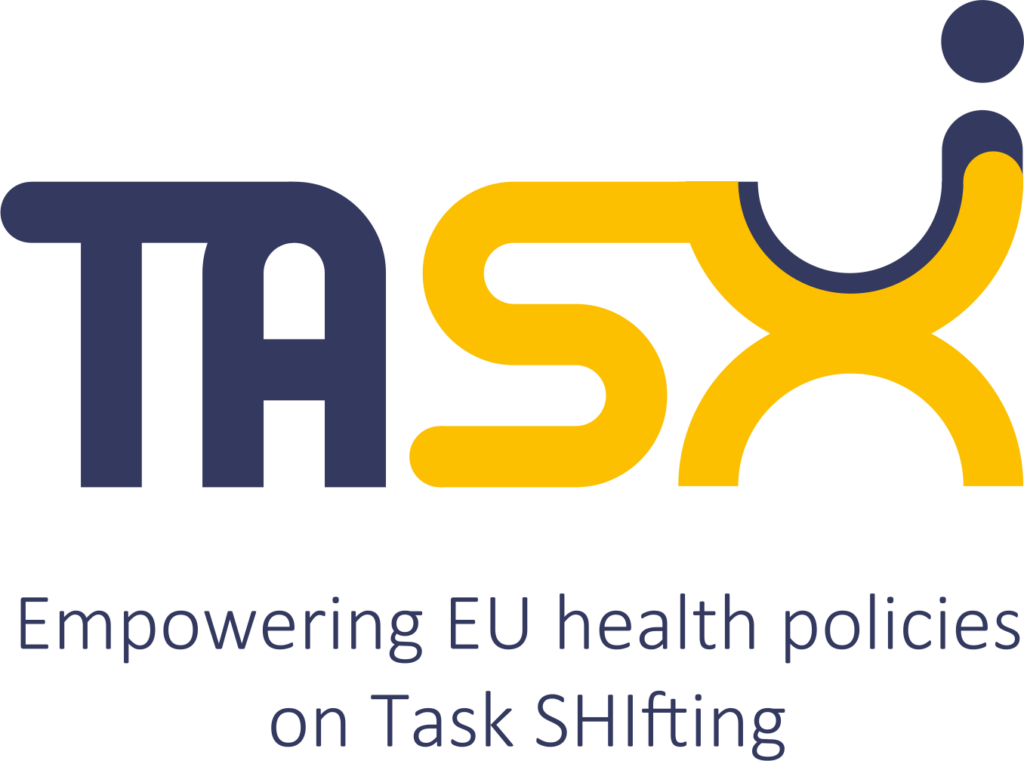TaSHI – Empowering EU health policies on Task Shifting
01/04/2021 – 31/03/2024
About the project:
Health workforce planning systems show a high variety of maturity in the EU.
Member States tend to focus on diverse aspects of managing health workforces and health policy focuses on optimising the operation of health systems by various measures. Initiatives on task shifting can contribute to more effective organisation of care and human resources for health management at different levels, so committing to improve efficient and sustainable health systems in innovative ways.
The main objectives of the TaSHI project are to provide a novel understanding and up-to-date knowledge on task shifting and on transferability and uptake of good practices in implementation. TaSHI applies different methods of analyses in order to provide added value on the concept, notion, and implementation of task shifting at EU-, national- and regional levels.
TaSHI performs case studies at five implementation sites to gather evidence and data on the different types of task shifting (e.g. working time re-allocation, re-considered scope of practices in primary care, mental health care, radiology and ophthalmology, benefiting from telemedicine and digital health).
TaSHI aims to facilitate dialogues and knowledge exchanges between the relevant stakeholders. Strengthening governance and stakeholder engagement for transferring and upscaling task shifting practices plays a crucial role in policy-making supporting health reforms for workforce development, as well as in enhancing cultural sensitivity, flexibility, readiness, and organizational adaptation to task shifting.
The action delivers a collection of good practices, useful tools and methods, a guidebook on task shifting supporting the real-life implementation, case studies on the pilots’ experiences, practical training materials and curriculum, and a set of recommendations. The deliverables on tangible solutions and practical products support EU MS at policy and organisational level to initiate and implement their own actions tailored to the local settings.
Members:
Consortium leader: Semmelweis University Health Services Management Training Centre
Role of HSMTC: Consortium leader, Work Package Leader in Dissemination and Communication
Consortium members:
- AGENZIA NAZIONALE PER I SERVIZI SANITARI REGIONALI (AGENAS)
- POLIS-LOMBARDIA
- STICHTING NEDERLANDS INSTITUUT VOOR ONDERZOEK VAN DE GEZONDHEIDSZORG (NIVEL)
- UNIVERSITETET I SOROST-NORGE (UNIVERSITY OF SOUTH-EASTERN NORWAY)
- LIETUVOS RESPUBLIKOS SVEIKATOS APSAUGOS MINISTERIJA (MOH LT – LT)
- SOTSIAALMINISTEERIUM (MoSA)
For further information please visit this website: tashiproject.eu
HSMTC contact
Name: Fruzsina Kóder
Phone: +36 1 488 7613
E-mail: koder.fruzsina@emk.semmelweis.hu

